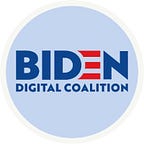U.S. Embassy in Jerusalem and other Shiny Objects
Trump’s recognition of Jerusalem as Israel’s capital and relocation of the embassy
by Martin J. Raffel
- Symbolically, U.S. recognition of Jerusalem as Israel’s capital and relocation of the embassy there from Tel Aviv was positive. Yet, looking at this move more deeply we see that it did not enhance Israel’s security. And while a small number of other countries also have decided to move their embassies to Jerusalem, the U.S. decision did not lead the international community any closer to recognition of Jerusalem as Israel’s capital.
- Every U.S. president, Republican and Democrat, campaigned on the issue of moving the embassy, but once elected, resisted doing so knowing it would detract from America’s ability to serve as an effective facilitator of negotiations between Israel and the Palestinians. It appears that Trump’s decision to depart from historical precedent has led to such a result.
- Trump’s decision also appears to be inconsistent with previously signed agreements between Israel and the Palestinians brokered by the U.S. and supported by the international community (Oslo Accords), which called for Jerusalem’s permanent status to be resolved only through negotiations between the two parties.
- At the end of the day, the Jewish people did not need Trump to recognize Jerusalem as their eternal capital. That is a historical fact going back three millennia. Trump even acknowledged that the Jerusalem decision had more to do with shoring up evangelical support. “And we moved the capital of Israel to Jerusalem: That’s for the evangelicals. You know, it’s amazing that the evangelicals are more excited by that than Jewish people.”
Trump’s recognition of Israeli sovereignty over the Golan Heights
- No one was pressing Israel to relinquish control over any part of the Golan Heights, especially since, in many respects, Syria has ceased being a functioning state. Again, as in the case of the U.S. embassy in Jerusalem, recognition of Israeli sovereignty was a mere formality without any constructive impact. If anything, the U.S. recognition unnecessarily engendered international ill will.
Trump’s policy that Israeli settlements in the West Bank do not violate international law
- The decision by the Trump Administration to declare Israeli settlements in the West Bank as consistent with international law marked a shift in U.S. policy going back to the 1970s and runs counter to a continuing international consensus on this issue. Since the founding of the state, Israel has worked tirelessly to overcome international isolation and be fully accepted into the family of nations. Its isolation, whether due to settlement policy or other reasons, plays into some of the darkest, historically based psychological fears Israelis have about living as a Jewish state among hostile neighbors.
- Israeli right-wing governments and some scholars have argued that settlements do not violate international law. The international community and other legal scholars argue settlements contravene the Geneva Accords.
- One need not resolve this legal question to draw the conclusion that the administration’s action has given license to the Jewish settler movement and Israeli government to continue pursuing an aggressive settlement policy. While certainly not the only obstacle to peace, settlements throughout the West Bank create facts on the ground that may close off any opportunity to achieve a negotiated two-state outcome — the only outcome that can preserve Israel’s dual identity as Jewish and democratic.
Where does Biden stand on these issues?
- Biden has asserted that, while he does not believe the relocation of the U.S. embassy to Jerusalem outside an agreement between Israel and the Palestinians was a wise decision, as president he would not return the embassy to Tel Aviv.
- Biden has expressed the view that settlements pose an obstacle to peace between Israel and the Palestinians but places the emphasis on seeking a resolution of their age-old conflict. In its platform, the Democratic Party platform “supports a negotiated two-state solution that ensures Israel’s future as a Jewish and democratic state with recognized borders and upholds the right of Palestinians to live in freedom and security in a viable state of their own.”
###
Martin J. Raffel grew up in Harrisburg, PA, and earned a BA at Franklin & Marshall College in Lancaster. He received his law degree from the Hebrew University in Jerusalem and became a member of the Israel Bar Association. Following his return to the U.S. in 1978, he joined the Pennsylvania Bar Association before beginning a career in Jewish public affairs in 1979 at the American Jewish Committee in Philadelphia serving as assistant director to Dr. Murray Friedman. Martin later served as director of the American Jewish Congress in Philadelphia and vice president at the Reconstructionist Rabbinical College. From 1987–2014, he was senior vice president at the Jewish Council for Public Affairs (JCPA) and principal professional on Israel, world Jewry and international human rights. He was instrumental in creating the Israel Action Network, a joint strategic initiative of The Jewish Federations of North America and the JCPA to combat the assault on Israel’s legitimacy.
***
This is the final part of a four-part series comparing Trump’s presidency to the Biden/Harris candidacy prepared by Democratic Jewish Outreach Pennsylvania (DJOP) board member Martin J. Raffel [bio below]. Here we look at high profile steps taken by the Trump administration, which, on the surface might reasonably be regarded as positive, but are primarily symbolic in nature and do not advance Israeli security and the search for peace. And they arguably could be detrimental. We encourage you to read this material as you contemplate the most crucial election in the history of American democracy. But, please, do not just read it. We need to you to actively use this material in your advocacy efforts with colleagues, friends, and relatives. We encourage and value any feedback you care to share.
For a comprehensive Trump Versus Biden primer for the Jewish community go to: https://djop.org/2020/08/13/trump-vs-biden-a-jewish-primer/
For detailed information about how Vice President Biden plans to address our country’s challenges, go to: https://joebiden.com/joes-vision/
